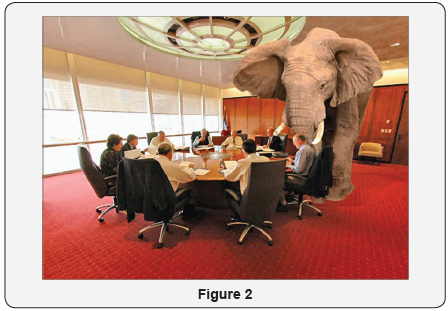The Need to Change Perspective on Health and Wellness
*Nicolas Argy
Department of Public Health, Boston University School of Medicine, USA
Submission: February 17, 2017; Published: February 22, 2017
*Corresponding author: Nicolas Argy, Department of Public Health, Boston University School of Medicine, USA,Email: nargymd@gmail.com
How to cite this article: Nicolas A. The Need to Change Perspective on Health and Wellness. JOJ Pub Health. 2017; 1(2): 555556. DOI:10.19080/JOJPH.2017.01.555556
(Figure 1) Do not fear change, fear staying the same

Roofing is one of the most dangerous activities in the construction industry. According to the Bureau of Labor Statistics, workers in the roofing industry are over three times more likely to experience fatal occupational injuries when compared to construction There is a pressing need for people to think beyond doctors, drugs, surgery, lab tests and hospitals as the source of wellness and health intervention. Moving away from a diagnosis/treatment of disease model is desperately needed. We need to move away from the “Sick Care Model”.
New payment models, value based, bundled or capitated will always fail
We need fewer hospitalizations and doctors visits by preventing illness and no matter how we pay the providers for care they will never have a desire to downsize or eliminate the need for their services
I find it fascinating that brilliant academics propose multiple solutions to our health care quagmire that are doomed to failure. Reimbursement based on “value” and bundled care/capitation can never work. Policy gurus, again mostly from the ivory tower,have missed the point. You can never devise a payment system to convince the medical industrial complex to downsize and what I am proposing, promoting prevention of disease, does just that! The impetus for change must come from the consumer directly or self insured employers.
The silver lining is that the Medical Industrial Complex is well positioned to take on the role to champion prevention and profit from the new paradigm. Healthcare incentives are upside down. Value based, bundled payments and capitation models of reimbursement will not solve our long term needs as a society. We need to pay for and invest in prevention.
There is an overwhelming need to avoid the medical industrial complex which perpetuates the sick care model. Good nutrition, robust activity, stress reduction, promoting good sleep and mental health with education and behavioral intervention to promote these salutary activities provide the key. Our best long term solution to wellness does not involve any medical tests or visits to a clinician in fact it pointedly involves doing everything to avoid these encounters. Redirecting efforts to the social determinants of health and only using the medical field where evidence based practice shows benefit is the long term solution.

We spend $3.2 trillion yearly on sick care and a medical model of treating disease but forget that medical care is responsible for 15% of our overall health and wellness. 85% of our well being is based on the social determinants of health, education, diet, exercise, environmental factors, use of tobacco and alcohol, etc. (Figure 2)
a. Six solutions are needed
- Redirect resources to the social determinants of health
- Revitalize patient engagement and shared decision making [1]
- Demand all medical services provided and reimbursed be evidence based [2]
- Eliminate the third leading cause of death, Medical Errors [3]
- Mandated term limits for elected officials
- Repeal of Citizens United v. Federal Election Commission
(Citizens United was a 5-4 decision of SCOTUS which thwarts campaign finance reform) (Figure 3).
Using effective policies like heavily taxing highly processed addictive foods to subsidize healthy fruits/vegetables and eliminate food deserts as well as other policies banning advertising to children of same foods is needed. Creative governmental incentives to encourage businesses to haveemployee assistance programs that promote increased activity, weight control, alcohol and tobacco limitation, etc will also go a long way. The correct governmental policies can certainly help in the effort.

I hope this article causes those committed to enhancing the human condition to critically evaluate many of the policy solutions currently being proposed.






























